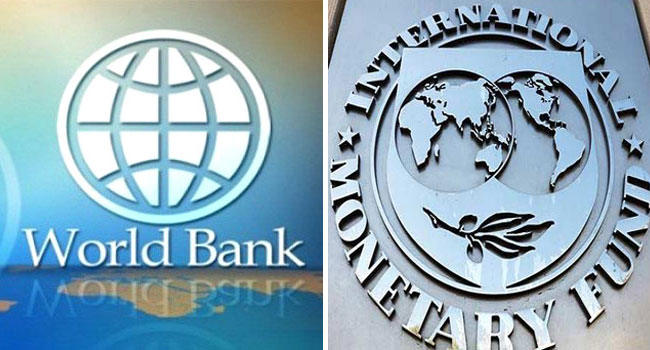One of Pakistan’s most influential political and economic figures is expected to represent Pakistan at the next annual spring conference in Washington, DC, of the Breton Wood Institutions (BWIs), including the International Monetary Fund and the World Bank, according to a story in The News.
This fiscal year’s budget and current account deficits have increased the already enormous imbalance, making a renewal of the IMF programme all but impossible at this point.
This Friday, the Ministry of Finance will meet with the International Monetary Fund for a technical meeting, but no virtual meeting has been set up for review talks at this time.
Ismail confirmed that the Pakistani delegation will attend the BWIs meeting, as did the adviser to prime minister on Finance.
The governor of the State Bank of Pakistan (SBP) and an assistant secretary for external finance will be part of the formal delegation. After the PML-N administration removes Ismail off the Exit Control List, it’s possible that he may join the delegation, according to the magazine.
In an interview with the New York Times, Hamid Yaqoob, the country’s finance secretary, said, “IMF discussions are never suspended. Because there was no finance minister, there was a pause in the proceedings of government. We’ve been exchanging information with the International Monetary Fund. Our meetings have grown more frequent and focused on finishing the 7th Review,” with the spring meeting coming up next week.
It was also not specified when the 7th Review under the $6 billion Extended Fund Facility will be completed (EFF).
Reviving the IMF programme will be tough considering the country’s colossal twin deficits.
In addition, the government’s choice to maintain oil prices the same conveyed the IMF the incorrect message. The IMF programme cannot be revived unless the strategy is changed and they abolish the relief mechanism.
A well-known economist and author of a book on Pakistani economics, Yousuf Nazar, was asked about the issue, and he replied that POL costs should be raised gradually. According to his proposal, the Rs1,000 billion in annual subsidies for large businesses like fertiliser, sugar and other sectors should be repealed and transferred toward paying targeted gasoline subsidies, which he characterised as a complete solution.
The pricing mechanism of POL goods should be made public and a legislative committee should be constituted to allow a public hearing to determine the facts and then publicly place the pricing system.
There should be no violation of UN sanctions by purchasing Russian oil like India does. He said that they could set a payment system up through a third nation, and that Pakistan could then use that payment system to gain inexpensive oil from Russia.
As part of Pakistan’s overall economic plan, he suggested POL imports on delayed payment from China and other friendly nations may also be considered.
Ex-minister of finance Dr Khaqan Najeeb informed this reporter that subsidised energy pricing practises are unsustainable since they are a big strain on the government’s coffers. While inflationary pressures are hard to pass on to customers, increased costs resulting from the global commodity super-cycle and the impact of the currency change are much harder.
In his view, caution must take precedence over populism. The government has recently taken control, and it is hoped that it would revise the price choice after taking stock of the situation. One option is to progressively increase the price of petroleum products until they pay the entire cost of the goods. We may leave PDL and GST at their current levels.
According to Dr Khaqan, the government’s new databases covering a wider population have made it workable to increase the breadth and magnitude of targeted subsidies. Fuel cards connected to income help databases, particularly for motorcycle riders for up to a specific quantity at discounted rates, and diesel fuel cards for public transportation and farmers using tube-wells and tractors can be implemented. Other alternatives. According to him, the government will make the difficult decision to eliminate general subsidies in the economy, from which everyone benefits, if it uses targeted subsidies.


